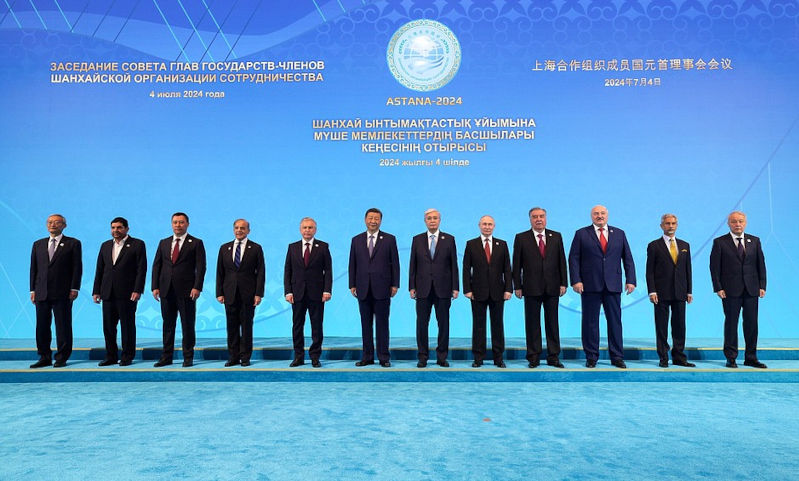For a pacific Pacific: thoughts about how to promote peace
September 17, 2024
Naval and air standoffs, sabre-rattling and accusations of underhand dealings are heightening tensions in the Asia-Pacific region and causing a security dilemma. It does not have to be like this. Diplomacy and referral to international dispute resolution mechanisms can make a difference.
Unless information exchange is improved and serious attempts are made to understand all sides’ points of view, the United States and its allies, including Japan, China, Russia and North Korea will be mesmerised by threats and imagined scenarios of doom, and will continue to build defensive walls. Remember, this was how international affairs were managed during the Cold War. Now once more, countries are rebuilding their arsenals and engaging in an arms race.
William Burns and Richard Moore, the chiefs of the CIA and MI6, wrote an extraordinary joint article published in the _Financial Times_. “There is no question that the international world order — the balanced system that has led to relative peace and stability and delivered rising living standards, opportunities and prosperity — is under threat in a way we haven’t seen since the Cold War.” They referred to “an unprecedented array of threats” starting with Russia’s invasion of Ukraine. They highlighted the rise of China as “the main intelligence and political challenge of the century”, and said they had reorganised services to reflect that priority.
From the other side of the fence, China’s President Xi Jinping, addressing members of the Shanghai Cooperation Organisation in July this year, spoke about “real threats from the Cold War mentality” and emphasised the need to “safeguard the right to development in the face of real risks from the ‘small yard, high fences’ mind-set”. Earlier, in January, the Communist Party of China, using its regular pen-name Zhong Sheng, published an opinion piece in the _People’s Daily_ accusing the United States of “Cold War mentality and zero-sum game thinking, and engaging in economic and technological bullying”. In June, Russian President Vladimir Putin, in a long address to staff of the Foreign Ministry, spoke of a “highly perilous situation” in which the West was “undermining the world’s military-political stability”.
Australia is not aloof from this. At the AUSMIN talks in August, Defence Minister Richard Marles and Foreign Minister Penny Wong, meeting their US counterparts Secretary of Defence Lloyd Austin and Secretary of State Anthony Blinken for a wide-ranging discussion on bilateral and international relations, issued a joint statement that was aimed at China. They “expressed concern about China’s excessive maritime claims in the South China Sea that are inconsistent with international law and unilateral actions to change the status quo by force or coercion. They noted grave concern about China’s dangerous and escalatory behaviour toward Philippine vessels lawfully operating within the Philippines’ exclusive economic zone… (and) noted with concern China’s recent unsafe and unprofessional encounters with naval vessels and aircraft that were exercising freedom of navigation and overflight, as established under international law”. This month, the foreign and defence ministers of Japan met for their annual talk on defence cooperation and Australia-Japan relations. At their press conference, Japanese Foreign Minister Yamikawa Yoko mentioned the need for cooperation in the light of “strategic interests especially in the East China Sea as well as South China Sea to strongly oppose attempts to unilaterally change the status quo by force”.
All these accusations arise from an absolute lack of trust on all sides and a tendency to place the worst possible construction on any words or action by other parties. This has led to military spending increasing on all sides. I hesitate to state which party began the tit-for-tat, but I believe the build-up began 30 years ago.
It was clear to me when I visited China in the early ‘90s that the government was deeply studying the progress of the First Gulf War. It concluded that the war was about the extension of US power in the Middle East, not just about oil or Iraqi aggression. Chinese defence forces also observed that they lagged behind the US in technology. These concerns increased after the 2003 US invasion of Iraq. Since that time, China has feared that the US, prompted by developments in Korea or Taiwan, might engage in military action in East Asia. For the last two decades, China has therefore upgraded the capabilities of the People’s Liberation Army and developed sophisticated missile systems and nuclear capability. I believe these were all responsive moves, prompted by US militarisation and its determination to remain a hegemon.
Other observers may put different constructions on Chinese actions and on the actions of their opponents. Chinese military outposts in the South China Sea are either necessary national defence, according to Beijing, or aggressive expansionism, according to Washington. US and Australian naval vessels transiting the Taiwan Strait are either a threat to Chinese sovereignty or defence of freedom of navigation. Closer military ties between Japan, the US and Australia are either the reason for Chinese actions, or are justified by them. Each side sees the other as aggressive and itself as defensive.
The latest US Department of Defence annual _China Military Power Report_ indicates that, although largely untested on the battlefield, China has caught up with the US in many respects, including advanced technology. If war breaks out, it is certain to be mutually disastrous, not only for those two countries, but for the whole world. Surely now it is critical that all governments cool down and reassess their options.
Australian leaders like to speak about their commitment to a rules-based order. Multilateral institutions can play a part in resolving misunderstandings and conflicts. Regular diplomats and Track Two dialogues can help to end disputes. Compromise is not always a bad thing. Let all sides make it clear that their ultimate objective is for peace to prevail.

